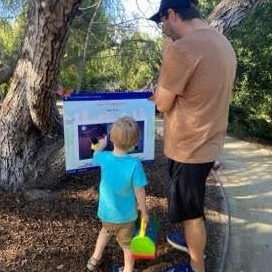Nominations are hereby called for the election of five Ordinary Councillors for the 2020-21 Council. All nomination forms and statements must reach the Returning Officer, c/o The Royal Society of Victoria, 8 La Trobe Street, Melbourne 3000 by 3.30 pm on 16th December 2019. Up to five Ordinary Members of Council for 2020 and 2021 will be elected by postal ballot closing at 3.30pm on 2nd March 2020. The elected Councillors will take up office from the Annual General Meeting to be held 14th May, 2020.
In a collaboration between researchers, the government, and production manufacturers, materials can be recycled and reformed into new products. We talk about three R’s: reduce, reuse, and recycle. Professor Veena Sahajwalla offers a fourth: reform. Instead of shipping waste offshore, we could be harvesting the high value materials in our waste. Each year, 50 million tonnes of e-waste is produced globally. In Australia, fewer than 1.5% of the 4 million computers sold a year are recycled. The total value of the resources embedded in them approximates $70 billion.
Indigenous cultures have a deep emotional investment and attachment to the landscape that acts as both almanac and encyclopaedia. It’s amazing that different cultures separated by vast oceans and continents have independently perceived the patterns in constellations in strikingly similar ways, despite being geographically and temporally separated. Stories from the cosmos give both practical guidance and spiritual comfort, and this way of telling stories and reading the stars is a way of keeping knowledge constant across generations.
With Dr Rajesh Ramanathan, we encounter a special example of a scholar exploring the knowledge base from traditionally separate field of scientific inquiry. First trained as a biologist, Rajesh combined his PhD work in materials science to consolidate expertise across the chemical, physical and biological sciences, enabling him to develop and contribute to research projects across disciplinary boundaries, leading work in the exciting new field of nanobiotechnology.
Our climate is already changing. Under the Paris Agreement, Australia and the world’s great nations have committed to reducing global temperatures to a 1.5-2°C rise over pre-industrial levels. Should this exercise prove successful, a 2°C rise will still have far-reaching climate effects, with major implications for the State of Victoria. This panel of senior scientists were gathered together by the Governor of Victoria to showcase some of the work in climate adaptation produced in our state and, most importantly, share actions we could all take in our personal and professional lives to adapt to the “new normal.”






